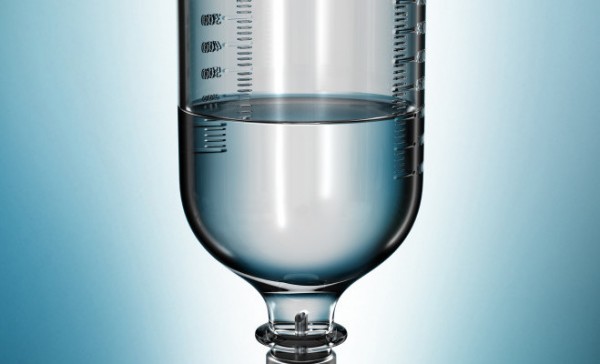Droppers with Eufillin for pregnant women - risk or necessity?
The use of Eufillin is widespread in medical practice when it becomes necessary to relieve any spasm and ease the tension of smooth muscles. Despite the fact that information on the use of the drug does not give a positive answer for the use of the drug during pregnancy, doctors still prescribe Eufillin in the form of tablets or droppers. What is the reason for this situation? What should a pregnant woman do if a gynecologist writes a prescription for Eufillin?
The main property of the components of the drug (theophylline and ethylenediamine) is the relaxation of the smooth muscles of various organs in humans, the removal of spasm, which interferes with their proper process, provokes risks to life:
- stop breathing;
- a sharp increase in pressure;
- vasoconstriction;
- poor blood oxygen saturation;
- edema, including the brain;
- increased uterine contraction and much more.

During pregnancy, it is edema that becomes frequent. This condition occurs due to the enlargement of the uterus. The embryo grows and begins to take up more space. The walls of the uterus squeeze neighboring organs, vessels. Blood circulation slows down. There is water retention in the body. The pregnant woman feels discomfort, mainly in the legs. But other parts of the body can also be affected.
In a serious situation, preeclampsia develops - a change in the direction of blood flow in all or some organs of the pregnant woman. This is usually expressed in an increase in pressure and an increase in the protein content in the urine. If in the normal state (before fertilization) a woman did not have such problems, then high blood pressure, excess waste fluid in the blood, slow kidney function becomes a threat to both the mother and the embryo (hypoxia, malfunctions in the heart, vascular elasticity).
The gynecologist decides to prescribe drugs that reduce swelling during pregnancy. Eufillin is used only in cases where other methods have failed. Tablets or droppers are the doctor's choice, which must be motivated by the patient's condition.
Eufillin during pregnancy - tablets or dropper
If safe methods of removing edema during pregnancy did not work, then the doctor prescribes Eufillin. The dosage is prescribed individually, because the instructions for use do not provide information. It only says that pregnancy, breastfeeding are contraindicated for use if there is no risk of a threat to the woman's life.

With a complex form of preeclampsia, the pregnant woman is sent to the hospital. The introduction of the drug begins with a small dose, gradually increasing it, observing the condition of the pregnant woman and the fetus.
In difficult situations, in order for the drug to enter the blood faster, Eufillin is administered intravenously. Such droppers during pregnancy are prescribed in small quantities, because the medicine can cause cardiac arrest. The dropper is prescribed once, and then the treatment is continued with tablets, gradually increasing the dose, if necessary.
The medicine dilates the blood vessels. As a result, the outflow of liquid improves, the content of salts decreases, which retain water. Edema decreases in the first days of treatment. Weight is lost, which during pregnancy is usually the result of hidden or obvious edema.
In addition to preeclampsia, an indication for the use of Eufillin during pregnancy can be a strong tone of the uterus, which is dangerous for miscarriage. To relieve muscle spasm, the patient is prescribed Eufillin.
Important! Do not take Eufillin alone, especially during pregnancy. The drug can cause tachycardia, hypoxia in the fetus.
Therefore, droppers, pills or injections during pregnancy are prescribed only by a doctor under supervision in a hospital. It is necessary to monitor the condition of the expectant mother and the embryo.
Instructions for the correct use of a dropper with Eufillin
If during pregnancy there are reasons that allow the doctor to prescribe Eufillin to the patient, then the dosage and method of administration is chosen individually in each case. The instruction attached by the manufacturer to the drug provides information on doses only for adults who are not pregnant. The fact of pregnancy is a contraindication for taking Eufillin.
It is advisable that the gynecologist send the pregnant woman to the hospital for a course of treatment with Eufillin.

Droppers with aminophylline are administered intravenously, starting with a low concentration of the substance. Ampoules of Eufillin are used, where the content of the substance is 2.4%. If the dosage of 24% is indicated on the ampoule, then Eufillin is used only intramuscularly. The drug is diluted in saline and administered very slowly, observing the blood pressure and heart rate of the mother and fetus.
The danger of using Euphyllin during pregnancy
Eufillin easily crosses the placenta and has a serious effect on the embryo. Therefore, it is undesirable to use the drug in the first trimester of pregnancy. Edema in women is most often observed in the second half of pregnancy, when the formation of organs in the baby is almost completed. But Eufillin can cause adverse reactions in the fetus much stronger than in a pregnant woman. Therefore, there is a risk when using this medicine during pregnancy.
There are other contraindications for admission. If a woman has some symptoms before pregnancy or during her onset, then Euphyllin cannot be used:
- low blood pressure;
- tachycardia;
- arrhythmia;
- intolerance to products containing caffeine;
- problems in the digestive tract (gastritis, ulcer);
- taking drugs that are incompatible with Eufillin.

For example, with Dexamethasone, Prednisolone, antidiarrheals and many other drugs. A detailed description of the compatibility of Eufillin gives instructions. This is due to the fact that while taking certain drugs, their effect on the body decreases or increases. The combination of Eufillin with Dexamethasone increases the possibility of adverse reactions in the second drug. The use of caffeine-containing drugs increases the absorption of Eufillin.
If the patient is prescribed a certain drug treatment other than Euphyllin, then this must be reported to the gynecologist so that all risks are excluded.
Having studied the features of the appointment of Eufillin for pregnant women, it became obvious that this is a serious drug, the use of which should only be prescribed by a doctor, if necessary. In the practice of physicians, there are other methods to solve the problems of edema or other complications during pregnancy. In other cases, the use of droppers, tablets or injections with Eufillin may become the main one in order to alleviate the patient's serious condition.














